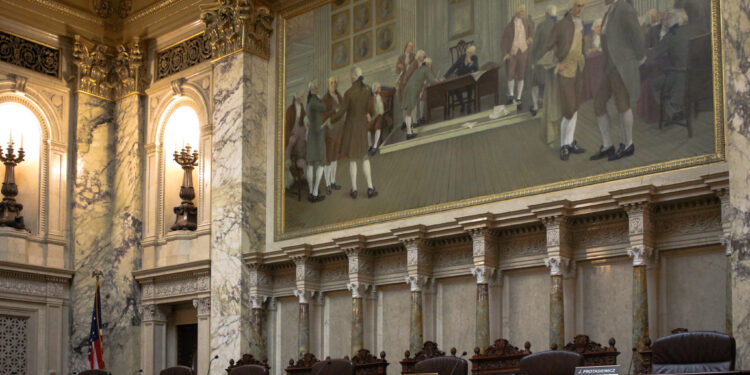Jan 2, 2024 Story by: Editor
Wisconsin Republicans have asked the state Supreme Court to reconsider its recent ruling that overturned the state’s legislative maps, arguing that meeting the Court’s January 12 deadline for redrawing district lines is unrealistic.
In a motion submitted last week, attorneys for Senate Republicans contended that lawmakers would be unable to meet the January 12 deadline for creating maps that align with the Court’s order requiring contiguous districts. They criticized the Court’s timeline, saying, “And now, announced the Friday before Christmas, the parties have been given 21 days — a third of them falling on weekends and state holidays — to submit proposed remedies, lengthy remedial briefs, and expert reports,” asserting that “The message is clear: The regular rules apply to Republicans. But here, Democrats get special solicitude.”
The Republicans also argue that the Court disregarded their arguments, pre-judged the case, and deprived them of a fair chance to respond to the new map deadline.
On December 22, the Wisconsin Supreme Court ruled in a narrow 4-3 decision that the state’s current legislative maps are unconstitutional due to many districts not meeting the contiguity requirement in the state constitution. The Court instructed the Legislature and other involved parties to submit revised maps by January 12, with additional arguments due ten days later.
State election officials have indicated that the maps must be finalized by mid-March to be ready for the 2024 legislative elections. The Court has appointed two referees, political science professor Bernard Grofman from the University of California, Irvine, and postdoctoral fellow Jonathan Cervas from Carnegie Mellon University, to evaluate the proposed maps.
Republicans have held a substantial majority in both legislative houses for over a decade, despite Wisconsin’s near-even political split, due to a highly partisan gerrymander established in 2011. That gerrymander, widely recognized as among the most extreme in the nation, was upheld in 2022 when the state Supreme Court, then under a conservative majority, implemented maps drafted by the Legislature.
In addition to requesting the Wisconsin Supreme Court’s reconsideration, Republicans are contemplating an appeal to the U.S. Supreme Court. However, this would require demonstrating a federal law violation, as the case is rooted in state law issues.
Assembly Speaker Robin Vos (R-Rochester) affirmed in a statement, “We will pursue all federal issues arising out of the redistricting litigation at the U.S. Supreme Court,” following the state Court’s decision.
Previously, Republicans indicated they would challenge Justice Janet Protasiewicz’s involvement in the case, arguing she had “pre-judged” the issue based on her campaign remarks on the legislative maps and contributions from the state Democratic Party. They warned that if she did not recuse herself, they would consider impeachment proceedings.
Protasiewicz refused to recuse herself, asserting that the Democratic Party, not a litigant in the case, did not affect her judgment and that recusing over political donations would create a difficult precedent for other Court members who have received campaign funding from either party. Although the impeachment threat has waned, Republicans could argue in federal court that her participation violated their due process rights under the federal precedent established in Caperton v. Massey (2009), which involved a West Virginia judge who declined to recuse himself despite substantial campaign donations from a party in the case.
While the details of Caperton differ, the precedent, set by a liberal Supreme Court majority, might face reluctance from the current conservative-leaning U.S. Supreme Court, which has historically supported political contributions in legal matters.
Other federal claims may arise after the final maps are chosen. During the legal conflict that led to the current maps, the U.S. Supreme Court ruled that the Wisconsin Supreme Court could not adopt maps drawn by Governor Tony Evers, as they violated the Voting Rights Act by attempting to create too many majority-minority districts in the Milwaukee area.
Vos expressed a similar expectation this time, stating, “Last time around, the Democrats’ maps racially gerrymandered voters to obtain a political goal. I expect they’ll do so again. The Supreme Court wasn’t fooled by the overt racial gerrymandering before, and it’s my hope that the Court will refuse to allow that or any other violation of federal law this time around, too.” Source: Wisconsin Examiner

















